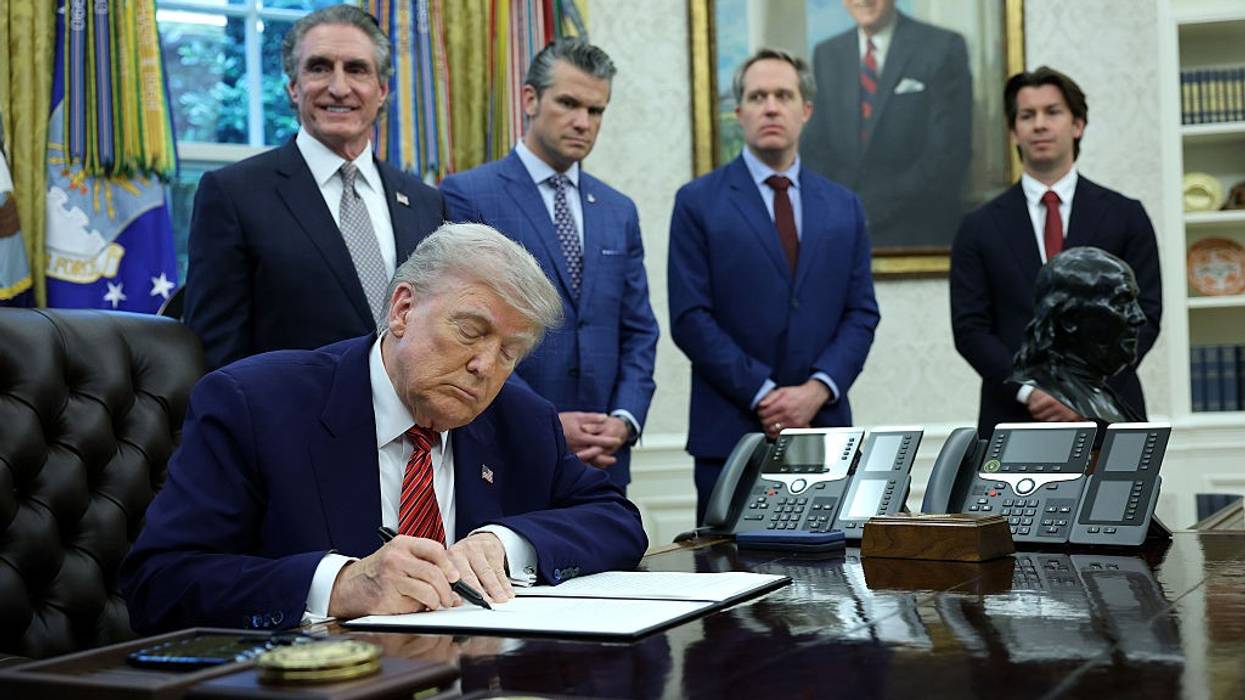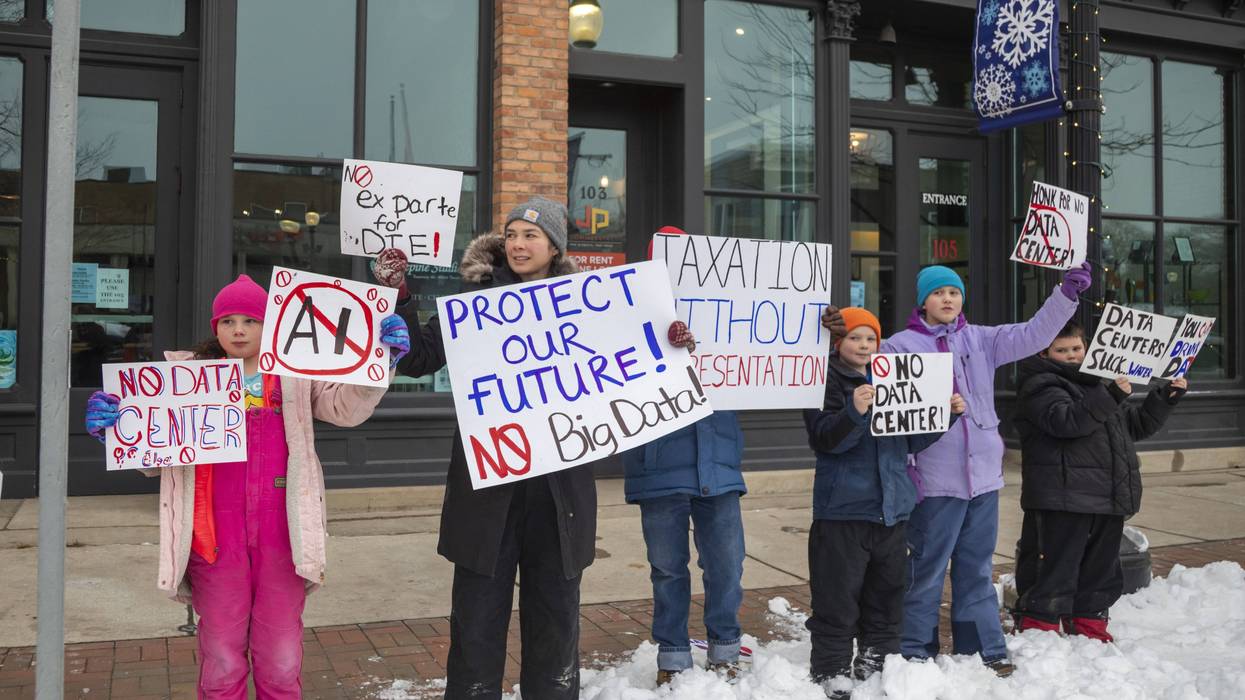At an event at the White House, Trump directed Defense Secretary Pete Hegseth to sign long-term, taxpayer-funded contracts with coal plants that would likely have otherwise been retired in the coming years, to purchase energy to power military installations.
"Hard to think of a dumber 21st Century energy and security policy than Trump's insistence that the Pentagon buy more coal power," said the Military Emissions Gap, a UK-based project that monitors military emissions data.
Trump also announced $175 million from the Energy Department to upgrade six coal plants in Kentucky, North Carolina, Ohio, and West Virginia, and was presented with a trophy naming him the “Undisputed Champion of Beautiful Clean Coal" by the Washington Coal Club.
The Trump administration's persistent efforts to cancel the planned closures of large coal plants have been challenged not only by more than a dozen state governments, but by the owners of at least one of the facilities and two utilities in Colorado.
The utilities, Tri-State Generation and Transmission Association and Platte River Power Authority, accused the administration of violating the Takings Clause of the US Constitution's Fifth Amendment, which states that “private property [shall not] be taken for public use, without just compensation.”
They argued in a regulatory filing last month that “the costs of compliance fall directly on their members and customers, who must now pay."
Ari Peskoe, director of the Electricity Law Initiative at the Harvard Law School Environmental and Energy Law Program, told the Washington Post that the administration's decision to compel coal plants to continue operating has raised household "energy bills while providing negligible benefits to consumers.”
“Each of the five plants were slated to retire because they are expensive to operate and there are cheaper sources of power available to meet consumers’ needs,” Peskoe told the Post. “Plant owners aren’t just flipping a switch to turn the plants back on—they are spending millions on maintenance, renewing expired coal contracts and rehiring workers.”
“It’s no wonder fossil fuel lobbyists are handing Trump an award today. Trump asked them for campaign cash and promised to return the favor—and now he is."
Bapna said Trump's latest actions on coal were the result of the president's campaign promise to fossil fuel executives, whom he asked for $1 billion in campaign donations and pledged to gut climate regulations in return.
“It’s no wonder fossil fuel lobbyists are handing Trump an award today. Trump asked them for campaign cash and promised to return the favor—and now he is," said Bapna. "The rest of us are left to pay the price: more heart disease and asthma attacks, higher utility bills, and more frequent unnatural disasters. This is a raw deal for our wallets, our health, and our future.”
Julie McNamara, associate policy director of the Climate and Energy Program at the Union of Concerned Scientists, pointed out that Americans will face higher electricity bills and be forced to pay for the new Department of Defense contracts at a time when "people and businesses across the country are struggling with rapidly escalating electricity costs" while other countries around the world expand their use of far cheaper renewable energy sources.
"The country has real solutions at hand—yet instead of pushing ahead with investments in the fastest, cheapest, cleanest resources available, the Trump administration is actively doing everything it can to stop the deployment of new solar and wind projects, to stop investments in energy efficiency, and to stop the buildout of modern grid infrastructure," said McNamara.
“Reality doesn’t lie: Coal is a rapidly dwindling relic of the past, not a solution for the future," she added. "The Trump administration’s flailings come with real consequences. Forcing the use of increasingly unreliable and relentlessly uneconomic coal plants will risk outages and send high electricity costs higher. Recklessly slashing health, safety, and environmental standards will harm people’s health and the environment. And opting for hollow statements and short-term bailouts fails to meaningfully deliver for the coal-dependent communities requiring actual, durable transition solutions."
Margie Alt, director of the Climate Action Campaign, suggested that Trump's latest handouts to coal firms "ignores basic economics" while also proving that "coal can't compete without a taxpayer-funded bailout."
"Our military is one of the largest consumers of energy in the world," said Alt. "Instead of improving the efficiency of our military and the quality of life for those serving our country, this order saddles taxpayers with inflated energy costs while exposing millions of Americans to more toxic pollution from old, inefficient plants."




